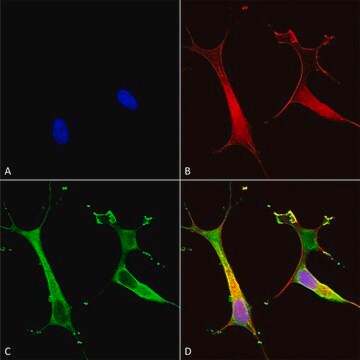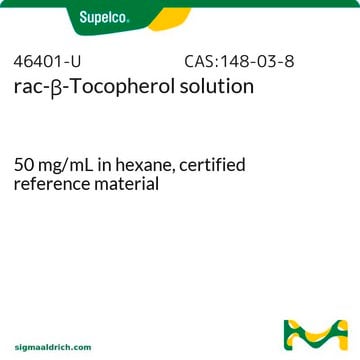T0577
D-δ-Tocotrienol
from rice, ≥65% (GC)
Synonym(s):
(R-(E,E))-3,4-Dihydro-2,8-dimethyl-2-(4,8,12-trimethyl-3,7,11-tridecatrienyl)-2H-1-benzopyran-6-ol
About This Item
Recommended Products
biological source
rice
Quality Level
form
liquid
concentration
≥65% (GC)
color
yellow to orange
storage temp.
−20°C
SMILES string
O1[C@@](CCc2c1c(cc(c2)O)C)(CC\C=C(\CC\C=C(\CCC=C(C)C)/C)/C)C
InChI
1S/C27H40O2/c1-20(2)10-7-11-21(3)12-8-13-22(4)14-9-16-27(6)17-15-24-19-25(28)18-23(5)26(24)29-27/h10,12,14,18-19,28H,7-9,11,13,15-17H2,1-6H3/b21-12+,22-14+/t27-/m1/s1
InChI key
ODADKLYLWWCHNB-LDYBVBFYSA-N
General description
Biochem/physiol Actions
Storage Class Code
10 - Combustible liquids
WGK
WGK 2
Flash Point(F)
Not applicable
Flash Point(C)
Not applicable
Personal Protective Equipment
Regulatory Listings
Regulatory Listings are mainly provided for chemical products. Only limited information can be provided here for non-chemical products. No entry means none of the components are listed. It is the user’s obligation to ensure the safe and legal use of the product.
JAN Code
T0577-10MG-PW:
T0577-5MG:
T0577-BULK:
T0577-10MG:
T0577-VAR:
Choose from one of the most recent versions:
Already Own This Product?
Find documentation for the products that you have recently purchased in the Document Library.
Customers Also Viewed
Our team of scientists has experience in all areas of research including Life Science, Material Science, Chemical Synthesis, Chromatography, Analytical and many others.
Contact Technical Service








